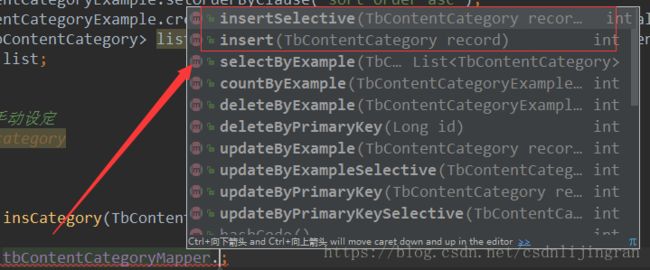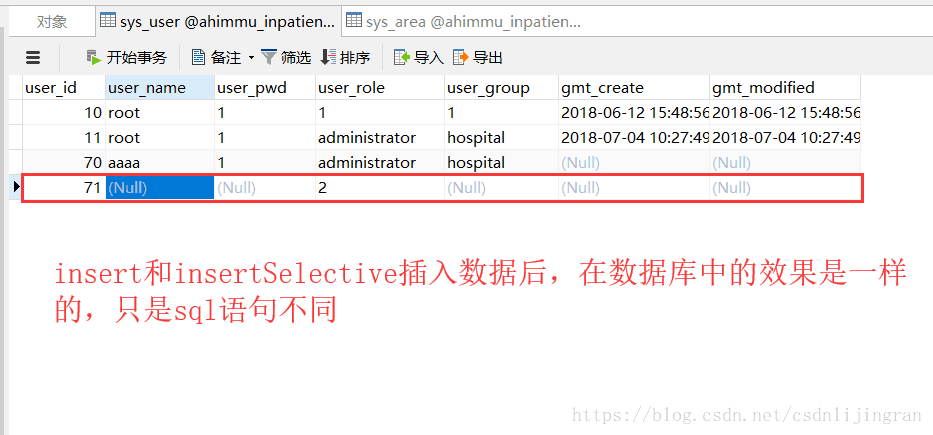Mapper中insert和insertSelective区别
使用逆向工程生成的代码做一个添加时通常都会给出两个答案,如题目想要增加一条数据会让你选择insert或者insertSelective

#insert和insertSelective区别
如果选择insert 那么所有的字段都会添加一遍,即使有的字段没有值
insert into tb_content_category (id, parent_id, name,
status, sort_order, is_parent,
created, updated)
values (#{id,jdbcType=BIGINT}, #{parentId,jdbcType=BIGINT}, #{name,jdbcType=VARCHAR},
#{status,jdbcType=INTEGER}, #{sortOrder,jdbcType=INTEGER}, #{isParent,jdbcType=BIT},
#{created,jdbcType=TIMESTAMP}, #{updated,jdbcType=TIMESTAMP})
但是如果使用inserSelective就会只给有值的字段赋值(会对传进来的值做非空判断)
insert into tb_content_category
id,
parent_id,
name,
status,
sort_order,
is_parent,
created,
updated,
#{id,jdbcType=BIGINT},
#{parentId,jdbcType=BIGINT},
#{name,jdbcType=VARCHAR},
#{status,jdbcType=INTEGER},
#{sortOrder,jdbcType=INTEGER},
#{isParent,jdbcType=BIT},
#{created,jdbcType=TIMESTAMP},
#{updated,jdbcType=TIMESTAMP},
#实例
如果不明白的话提供一个简单的例子,再结合上面的源码体会一下
前提Goods商品表里面有三个字段:id,name,price
此时我只设置了一个字段名字:
Goods g = new Goods();
g.setName(“手机”);
1、insertSelective(g)
此时我只设置了一个字段名字:
Goods g = new Goods();
g.setName(“手机”);
insertSelective(g);
insertSelective执行对应的sql语句的时候,只插入对应的name字段;
(主键是自动添加的,默认插入为空)insert into tb_goods (id,name) value (null,“手机”);
注意:此时是没有price什么事的
2、insert(g)
如果使用insert则是不论你设置多少个字段,统一都要添加一遍,不论你设置几个字段,即使是一个。
Goods g=new Goods();
g.setName(“冰箱”);
insert(g)
insert执行对应的sql语句的时候,统一都要添加一遍;
insert into tb_goods (id,name,price) value (null,“冰箱”,null);
注意:price也在哦!!
参考 https://blog.csdn.net/hello_word2/article/details/80560725
